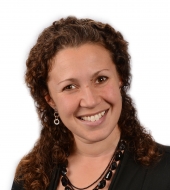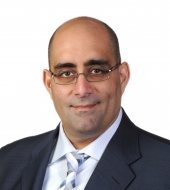
Kristin Lord is executive vice president of the United States Institute of Peace, effective January 28, 2013. In this role, Lord serves as the second-ranking officer of the Institute and helps lead the Institute's internal management team, oversee and integrate substantive programs, and manage growth.
From 2009-2013, Lord was executive vice president and director of studies at the Center for a New American Security where she oversaw the center’s research and served as one of three members of the center’s leadership team. During her tenure, CNAS published more than 110 reports and policy papers; launched programs on technology and national security and the military, veterans and society; diversified and strengthened the center’s funding base; and earned recognition as a premier think tank in the field of national security. While at CNAS, Lord also authored reports on U.S. grand strategy, cyber security, diplomacy and development.
Prior to joining CNAS, Lord was a fellow in the foreign policy studies program and Saban Center for Middle East Policy at The Brookings Institution. At Brookings, Lord directed the science and technology initiative of the Project on U.S. Relations with the Islamic World and led two major studies, one on human development in the Arab world and one on U.S. public diplomacy.
In 2005-2006, Lord served as a Council on Foreign Relations international affairs fellow and special adviser to the undersecretary of State for Democracy and Global Affairs. In that role, she worked on a wide range of issues including international science and technology cooperation, international health, democracy and the rule of law, and public diplomacy.
From 1995-2008, Lord held various roles at The George Washington University's Elliott School of International Affairs, including associate dean for strategy, research, and external relations and, earlier, associate dean for management and planning. In her most recent position, she oversaw the school's six research centers, graduate admissions, public affairs, and strategic initiatives. During her tenure at the Elliott School, she launched three master's programs, ten certificate programs, a global network of university partnerships, the school's skills curriculum, and numerous educational programs for students, diplomats, and mid-career professionals from the public, private, and non-profit sectors. A member of the faculty, she also taught courses on U.S. public diplomacy, U.S. foreign policy, and the causes of war.
Lord is the author of Perils and Promise of Global Transparency: Why the Information Revolution May Not Lead to Security, Democracy or Peace (SUNY Press 2006), Power and Conflict in an Age of Transparency, edited with Bernard I. Finel (Palgrave Macmillan, 2000), and numerous book chapters, policy papers, and articles. Her articles have appeared in Washington Quarterly, World Politics Review, CNN.com, Defense News, Joint Force Quarterly, Roll Call, The Hill, International Studies Quarterly, Science, Foreign Service Journal, National Interest on-line, The Christian Science Monitor, Politico, Huffington Post, and Foreign Policy.com. She has provided expert commentary to news outlets such as the Washington Post and Wall Street Journal and appeared on NPR, Al-Jazeera, BBC Radio, VOA, PBS, and MSNBC.
Lord is a member of the Council on Foreign Relations and a member of the board of advisors at the Center for a New American Security. She received her master's degree and doctorate in government from Georgetown University and her bachelor's degree, magna cum laude, in international studies from American University. She has been married to her husband Jeff Lord, an international trade attorney at Latham & Watkins LLP, for nearly twenty years. They have a teen-aged son.


















